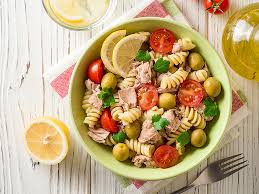Carbs are not evil but don't over do it.
- Reuben Wouch
- Mar 27, 2019
- 3 min read
Carbohydrates are the backbone of most modern diets and form the bulk of most caloric consumption. Dietary carbohydrates are the preferred fuel source of fuel for working muscle during short intense exercise, they are the preferred fuel of the brain, they can be stored as glycogen for use later, they prevent proteins from being used as a fuel, they aid in digestion, and provide flavor to food (Maughan, 2005). Carbohydrates are an important fuel source, but over consumption of carbohydrates is associated with increased levels of obesity and health problems. The amount of sugar and simple carbohydrates people consume should be reduced.
carbohydrates are complex molecules that are primarily energy substrates can affect satiety, blood glucose and insulin levels lipid metabolism, and aid in digestion (Cummings & Stephen, 2007). There are 3 main types of carbohydrates. The first are easily digestible sugars, which are either monosaccharides ,like glucose and fructose, or disaccharides, like sucrose and lactose. Over consumption of simple sugars in the forms of desserts, snacks, and drinks is strongly associated with obesity and weight gain (Romieu et al., 2017). These foods tend to be energy dense, contain little overall nutritional value, and are not satiating, thus leading to overconsumption and weight gain. The next is oligosaccharides, short chain carbohydrates, which are largely indigestible and they aid in digestion. Lastly, polysaccharides, particularly starches are made of many molecules of glucose linked together, and are found in foods like potatoes, corn, vegetables and rice. Starches generally take longer to digest, contain fiber, are more filling, and contain B vitamins and minerals. They should make up the bulk of a person’s carbohydrate intake.
A study of the dietary intake of 135,355 individuals from 18 countries, aged 35-70, over a ten-year period, found that diets high in carbohydrates (>60%) was associated with much higher rates of mortality and disease than a higher fat diet (>30%) (Dehghan et al., 2017). The research from Dehghan and colleagues suggests that people should decrease their carbohydrate intake and increase their fat intake. Most of the people consuming the high carbohydrate diets had large amounts of processed food and simple sugars, like high fructose corn syrup. Increased sugar levels increase energy balance, leading to weight gain and obesity. Subjects who consumed a high fructose corn syrup beverage over a 10-week period demonstrated increased lipogenesis, dyslipidemia and circulating uric acid levels, while reducing fatty acid oxidation and insulin sensitivity, all factors in cardio vascular disease and type II diabetes, when compared to subjects consuming a glucose sweetened beverage (Stanhope, 2015). Although the subjects who consumed the glucose drink had a similar weight gain, they did not have the same dysregulation in metabolic function. This would indicate that some high fructose corn-syrup has unique risks.
Carbohydrates should not be overly reduced due to their use as a primary fuel source during activity. Depending on the person’s activity a person should follow Pendergast, Leddy, & Venkatraman’s (2000) recommendations of a balanced diet of 20% protein, 30-35% of carbohydrate, and 30% of fat with the remainder of the macronutrients be allocated between fats and carbohydrates for the person’s unique needs. This way neither fat intake or carbohydrate deficits are too extreme to negatively influence performance. As far as food sources I would recommend most of carbohydrates come from starches in the forms of vegetables, legumes, whole grain rice, and potatoes. Lastly, people should minimize carbohydrates in the acronym CRAP (Carbonated drinks, Refined sugars, Added sugars, Processed food), which is a simple way to identify unhealthy foods. These simple sugars negatively affect carbohydrate and fat metabolism, and have unique health risks when compared to other carbohydrates.
References
Cummings, J. H., & Stephen, A. M. (2007). Carbohydrate terminology and classification. European Journal of Clinical Nutrition, 61(S1), S5-S18.
Dehghan, M., Mente, A., Zhang, X., Swaminathan, S., Li, W., Mohan, V., . . . Mapanga, R. (2017). Associations of fats and carbohydrate intake with cardiovascular disease and mortality in 18 countries from five continents (PURE): A prospective cohort study. The Lancet, 1-13.
Maughan, R. (2005). Basic metabolism II: Carbohydrate. Surgery (Oxford), 23(5), 154-158.
Pendergast, D. R., Leddy, J. J., & Venkatraman, J. T. (2000). A perspective on fat intake in athletes. Journal of the American College of Nutrition, 19(3), 345-350.
Romieu, I., Dossus, L., Barquera, S., Blottiare, H. M., Franks, P. W., Gunter, M., . . . Willett, W. C. (2017). Energy balance and obesity: What are the main drivers? Cancer Causes & Control, 28(3), 247-258.
Stanhope, K. L. (2015). Sugar consumption, metabolic disease and obesity: The state of the controversy. Critical Reviews in Clinical Laboratory Sciences, 53(1), 52-67.





Comments